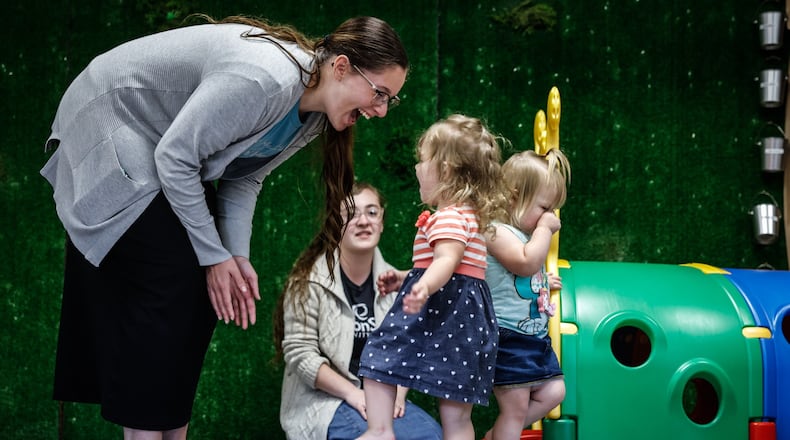Funding availability from the American Rescue Plan Act (ARPA) led the commission to contract for $342,850 with the Comprehensive Community Child Care Organization, dba 4C for Children of Dayton, to provide resources for existing and future childcare centers and home care programs in the county.
Nearly a year later, commissioners expressed concerns after hearing what was intended as a progress report with few details. Additional information was sought from 4C for Children with an updated report heard in June by commissioners, who said they were more comfortable with the effort being made.
“It’s important to realize that the issues revolving around childcare have been paralyzing our workforce for years, even before the pandemic,” said Commission President Wade Westfall. “Any efforts to improve our childcare infrastructure would be welcome, and 4C has made some positive strides, but to expect one agency to be able to solve all these problems in a short period of time is not realistic.”
Paige Runion, the 4C for Children employee working in Miami County, and Richard Osgood, county development director, outlined progress so far:
* A facility at the Troy Lutheran Church has submitted for 90 total spaces, half of which are for children age 30 months or less. This age group is the biggest need in the county, according to a study conducted in 2022 for the development department, Osgood said.
* Piqua Christian is adding 46 total spaces, 10 for toddlers and 36 for school-age children.
* Two family childcare providers are adding six spaces each, although they might transition into 12 each. These providers typically operate outside normal working hours, such as third shift, Osgood said. Another family childcare provider has a memorandum of understanding to sign, Runion said.
Another potential larger project in space at the former Piqua Mall property is drawing considerable interest. The site possibly could accommodate 100 seats. A project is in the design phase, Osgood said.
Another potential space in Piqua that has been explored poses a number of physical issues, Osgood said.
When 4C supports a center, it typically provides $18,000 to $23,000. “It is not enough to fully equip, but an assist,” Runion said.
The 4C agency funding formula is about $1,500 a seat, but that number could differ depending on what is in a contract. The funding typically is for materials, training, certifications and licensing and related costs, Runion said.
“We don’t invest your funding into programs until they have some skin in the game. It is not that we are holding on and not giving It to people, but we want to be sure the people who are getting the funding are actually going to increase the seats,” she said.
Approximately $200,000 of the ARPA funding remains available. Expenditures for costs other than materials can include limited capital expenses or relatively simple work, Runion said.
If the commissioners find a project where more capital support is desired, 4C would be open to amendments to its contract, Runion said.
Michael Clarey, county chief administrative officer, said that type of support could be considered for the Piqua Mall if a project is secured. The county and 4C have had several recent interactions to bring together child care providers and building owners, he said, adding, “Using the funding in this slightly different way could be the enabler for those type of projects.”
When larger child care centers are being established, staffing also can be an issue, Runion said. Discussions with education programs in the area usually are incorporated in efforts.
4C also has collaborated to an extent with a long-time nonprofit county agency, Childcare Choices, Clarey said. Recent discussion have focused on increased collaboration with Childcare Choices hosting upcoming training events. CC also has made six referrals to 4C.
Contact this contributing writer at nancykburr@aol.com
About the Author

